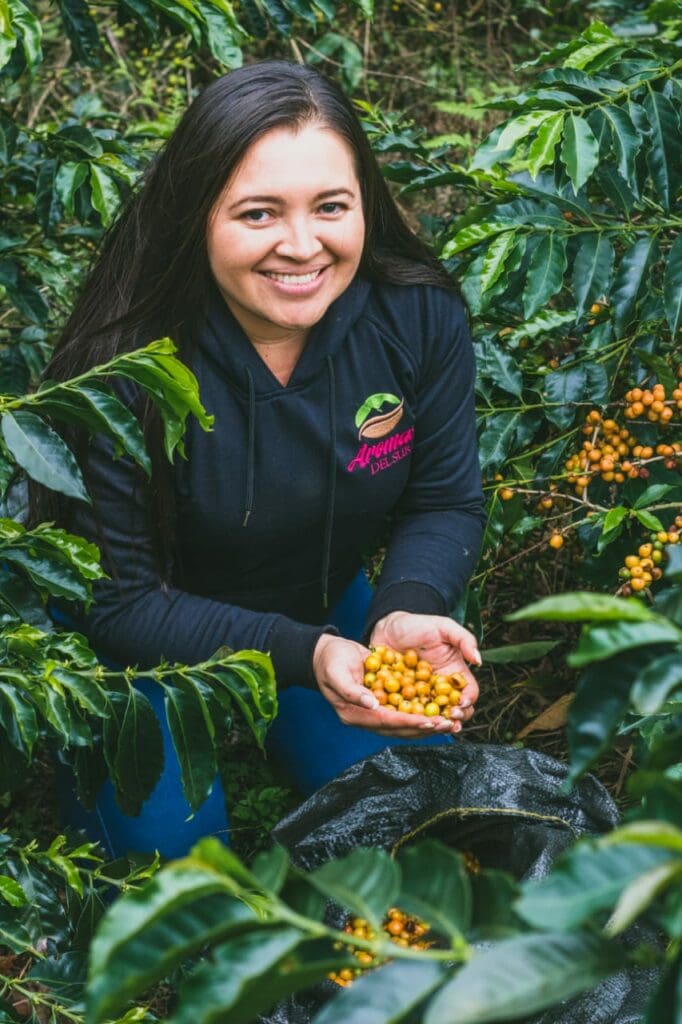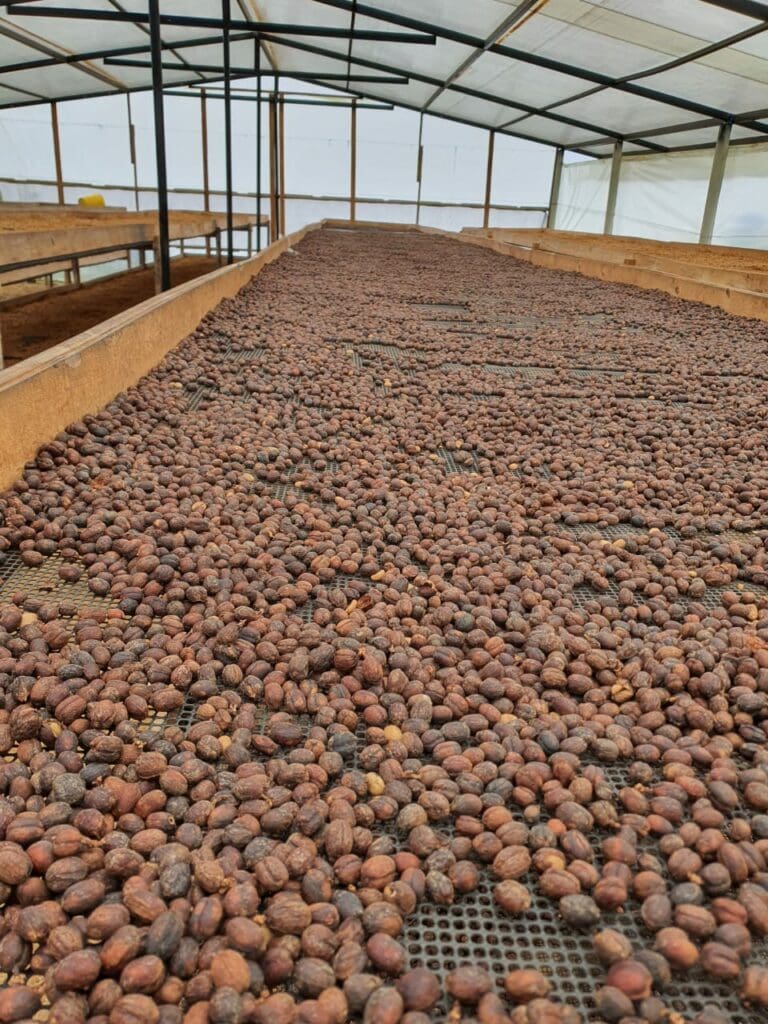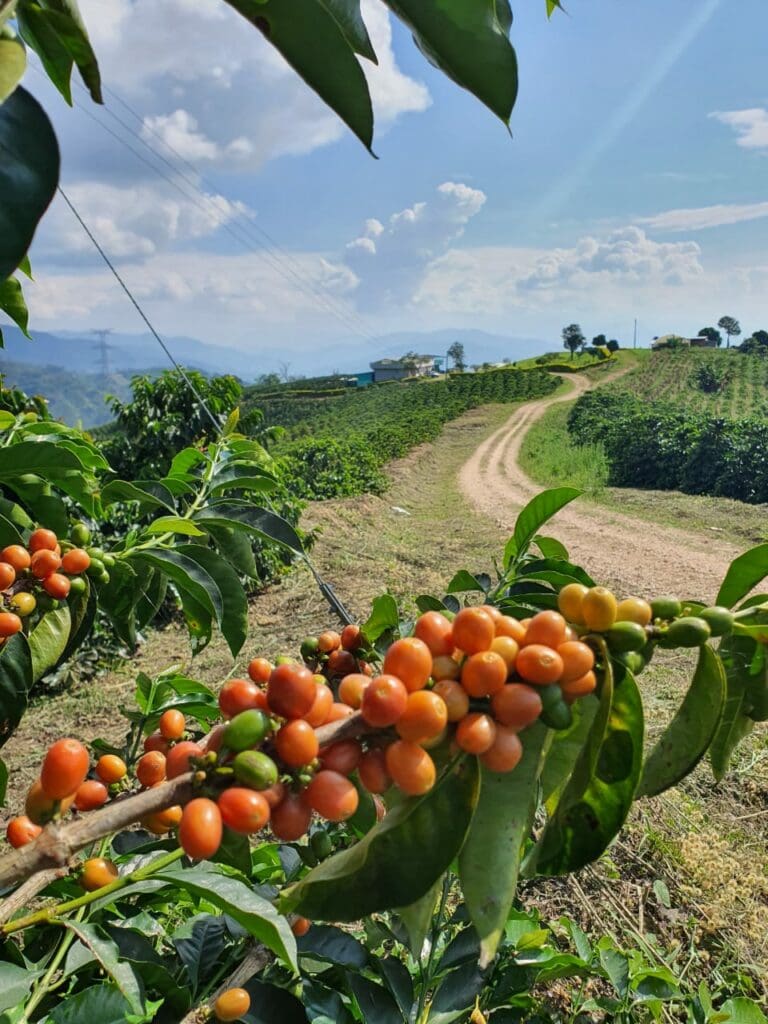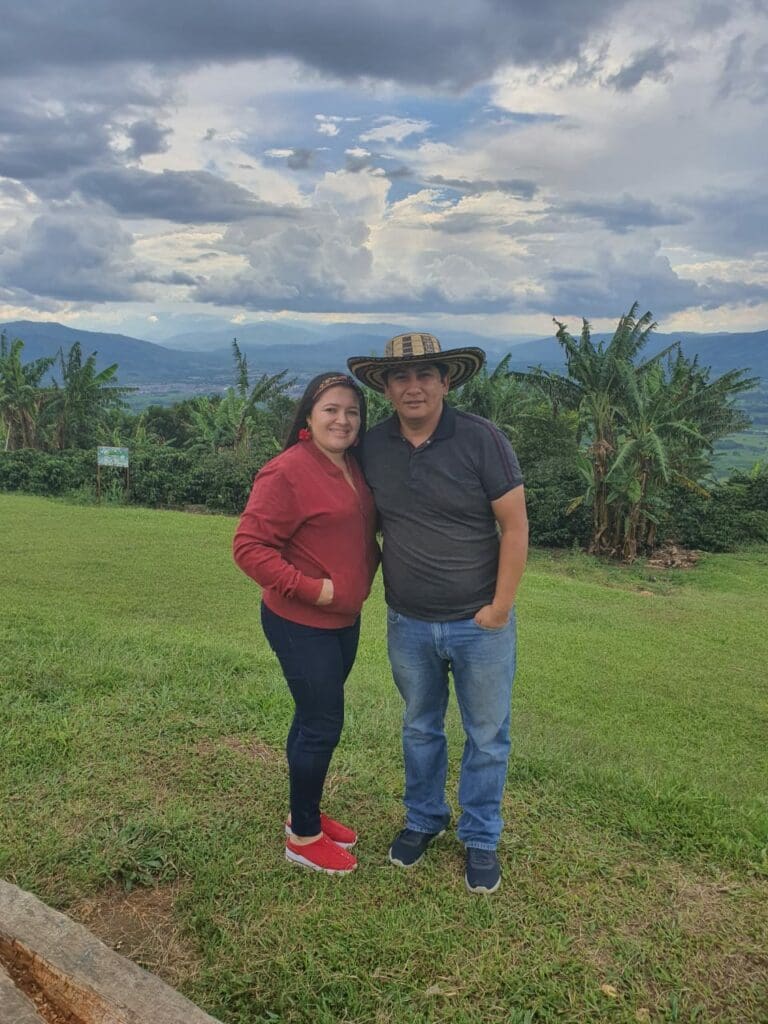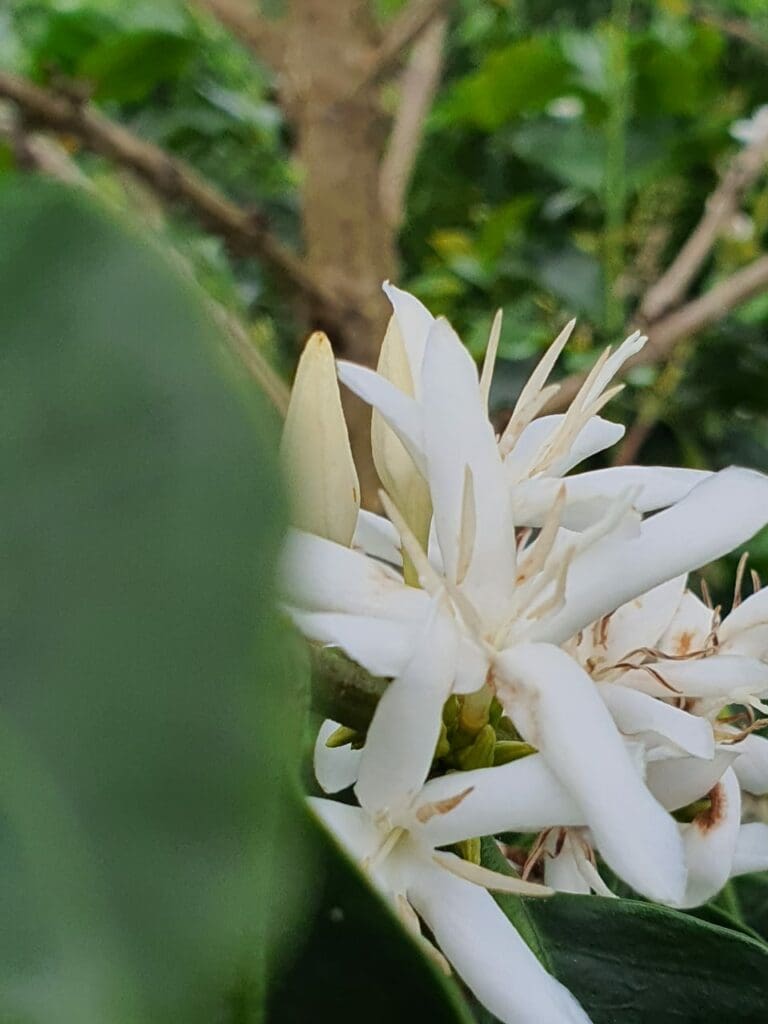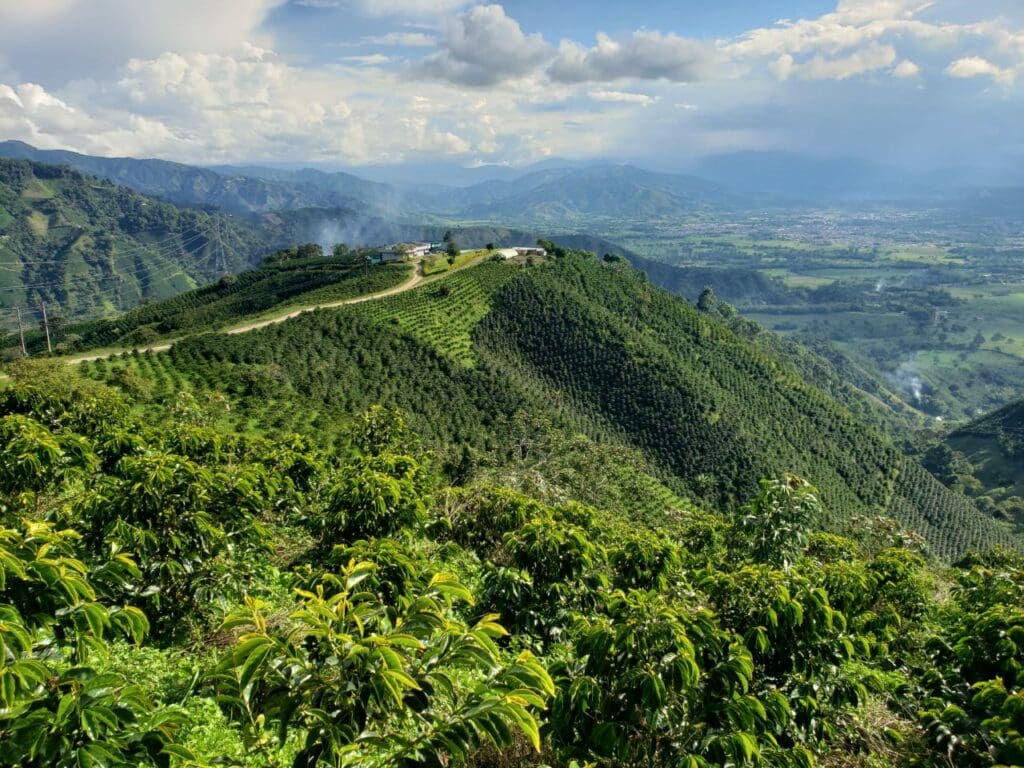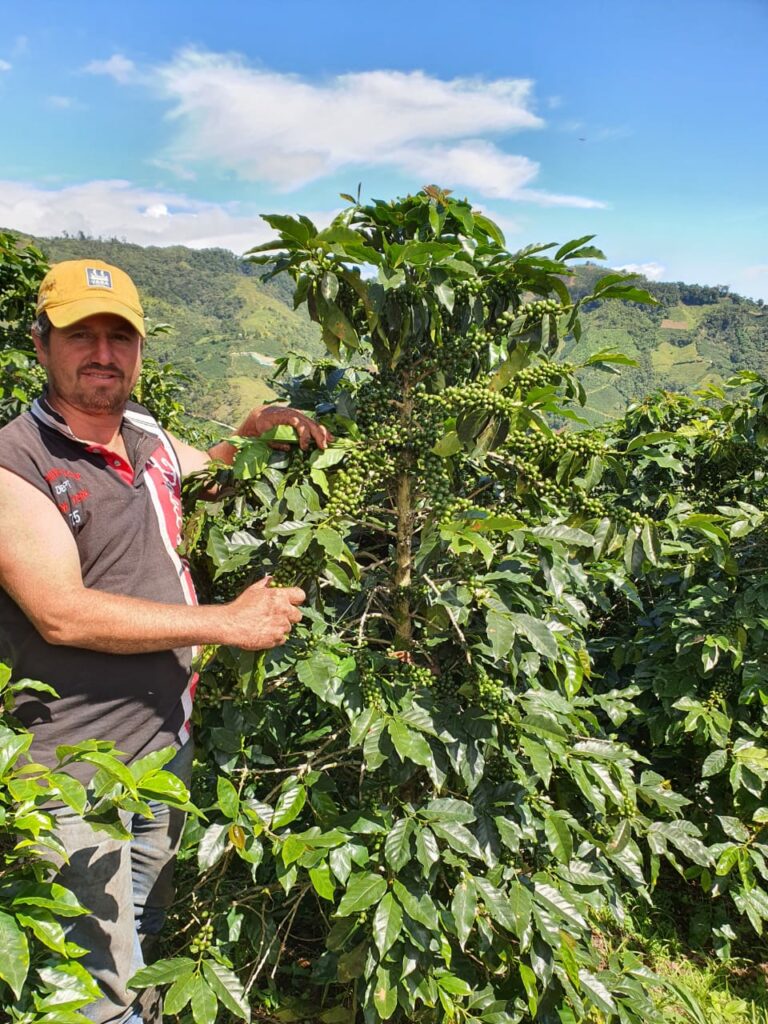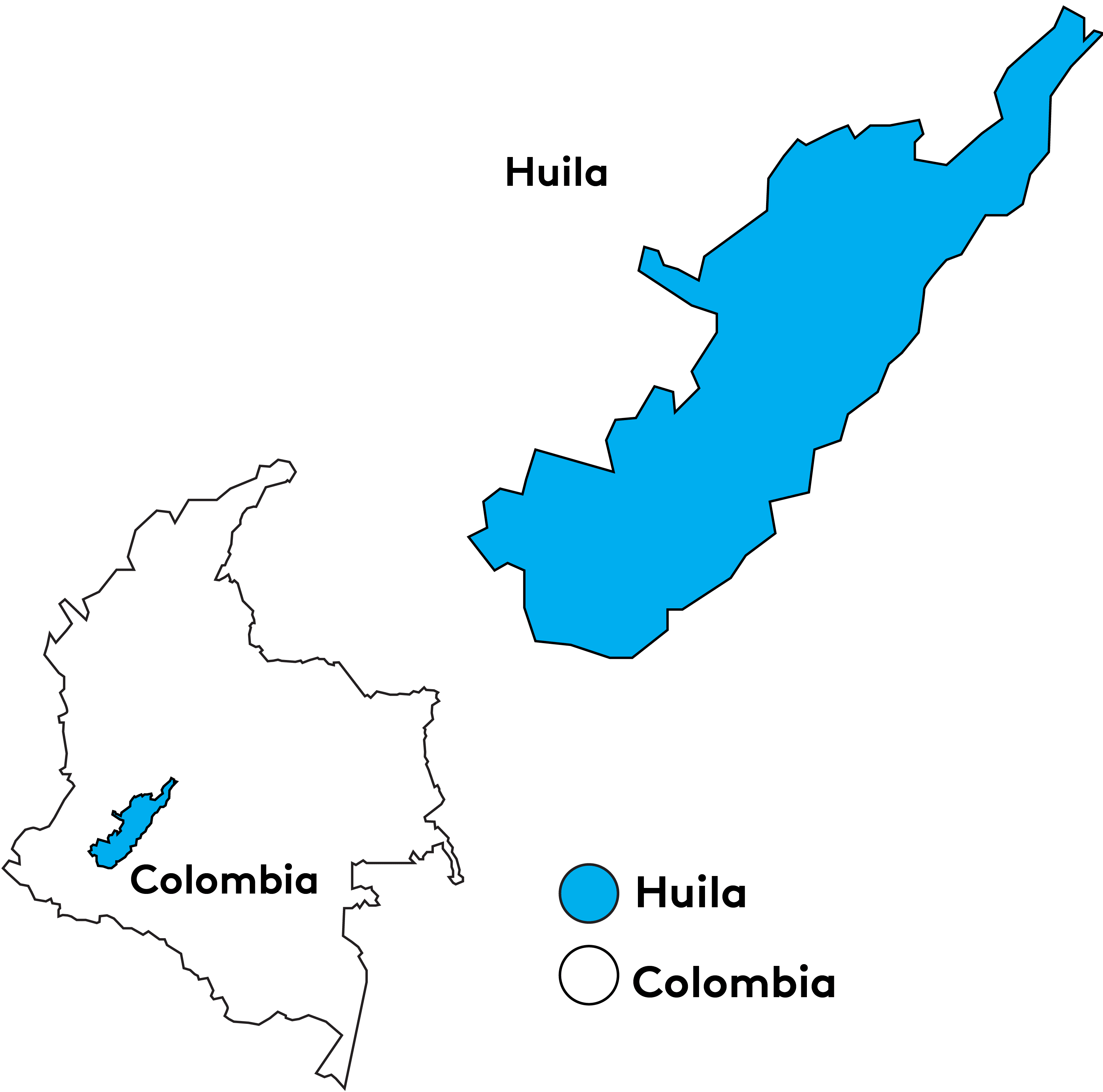Finca Las Nubes, located in the township of Agua Negra just 15 minutes outside of Pitalito, Huila, Colombia, is a partnership between professionals from every part of the coffee supply chain. The partnership includes:
– Claudia Samboni, co-owner of Aromas del Sur, which includes three coffee farms (Finca Monteblanco, Finca El Progreso, and Finca La Loma) and the Aromas del Sur dry mill
– Vicente Mejia, an exporter and trader with Clearpath Coffee
– Ricardo Pereira, COO of Ally Coffee
– Mark Trujillo, coffee roaster and owner of The Hub Coffee Co in Reno, Nevada, USA.
By bringing together this varied experience from each step in the process the team plans to focus on quality and sustainability in everything they do throughout production.
The farm was purchased in early 2020 and was already planted with coffee, but needed some attention and care to get the coffee trees into good shape. While part of the focus initially was to get the trees prepared to produce quality coffee, they already had an eye to the future with plans to plant varieties less common to Colombia—varieties like Mokka, and Sudan Rume. Even still, the 27 hectare farm is currently planted with Caturra, Pacamara, Pink Bourbon, and Gesha. Sitting at the top of a mountain overlooking the Laboyos Valley, Las Nubes gets mild temperatures around 18–21° C during the day, with cooler temperatures at 10–12° C at night, and enjoys an unobstructed view of the valley and surrounding mountains.
The property’s main building includes a drying space under its roof, as well as a water collection system that stores rainwater in a subterranean tank for daily tasks and coffee processing. Las Nubes also has an automated cherry floating system, depulper, and a 10,000 kg capacity mechanical silo on site for processing.
This lot of Pink Bourbon coffee was selected for Natural processing. Pink Bourbon cherries destined to become Natural coffee are harvested at 25 degrees Brix, which is a measure of the sugar content of the cherries. The coffee is then floated to remove any bad cherries before being fermented for 100 hours in anaerobic tanks. The coffee is then moved to the drying area where it dries on raised beds for 30 days before being milled and prepped for export.
